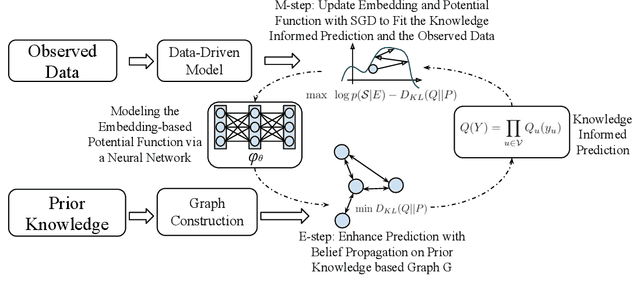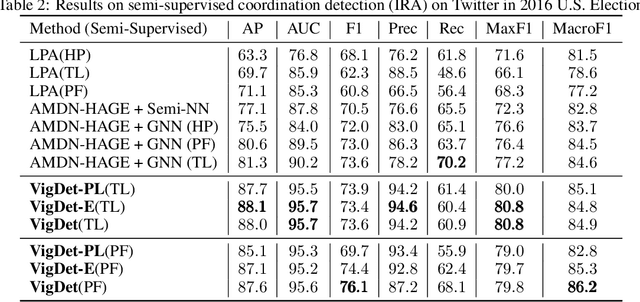VigDet: Knowledge Informed Neural Temporal Point Process for Coordination Detection on Social Media
Paper and Code
Oct 28, 2021



Recent years have witnessed an increasing use of coordinated accounts on social media, operated by misinformation campaigns to influence public opinion and manipulate social outcomes. Consequently, there is an urgent need to develop an effective methodology for coordinated group detection to combat the misinformation on social media. However, existing works suffer from various drawbacks, such as, either limited performance due to extreme reliance on predefined signatures of coordination, or instead an inability to address the natural sparsity of account activities on social media with useful prior domain knowledge. Therefore, in this paper, we propose a coordination detection framework incorporating neural temporal point process with prior knowledge such as temporal logic or pre-defined filtering functions. Specifically, when modeling the observed data from social media with neural temporal point process, we jointly learn a Gibbs-like distribution of group assignment based on how consistent an assignment is to (1) the account embedding space and (2) the prior knowledge. To address the challenge that the distribution is hard to be efficiently computed and sampled from, we design a theoretically guaranteed variational inference approach to learn a mean-field approximation for it. Experimental results on a real-world dataset show the effectiveness of our proposed method compared to the SOTA model in both unsupervised and semi-supervised settings. We further apply our model on a COVID-19 Vaccine Tweets dataset. The detection result suggests the presence of suspicious coordinated efforts on spreading misinformation about COVID-19 vaccines.
 Add to Chrome
Add to Chrome Add to Firefox
Add to Firefox Add to Edge
Add to Edge